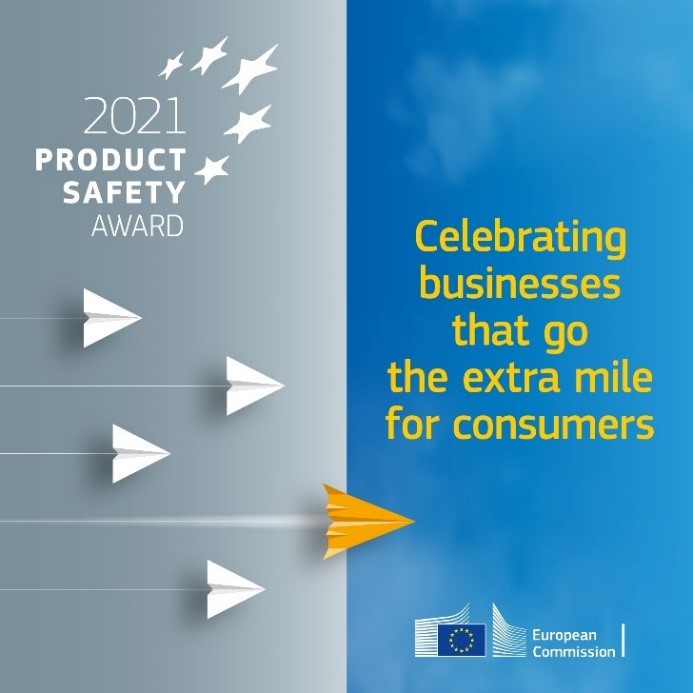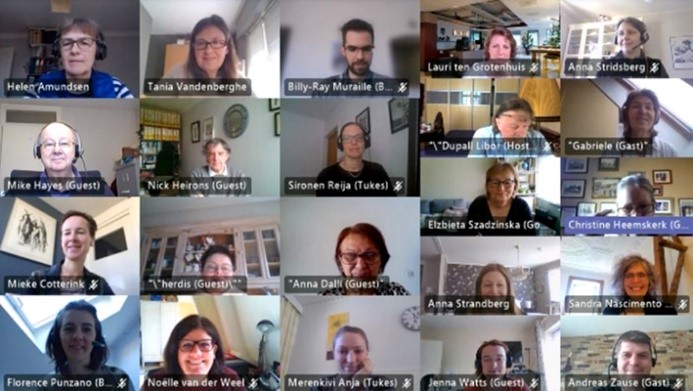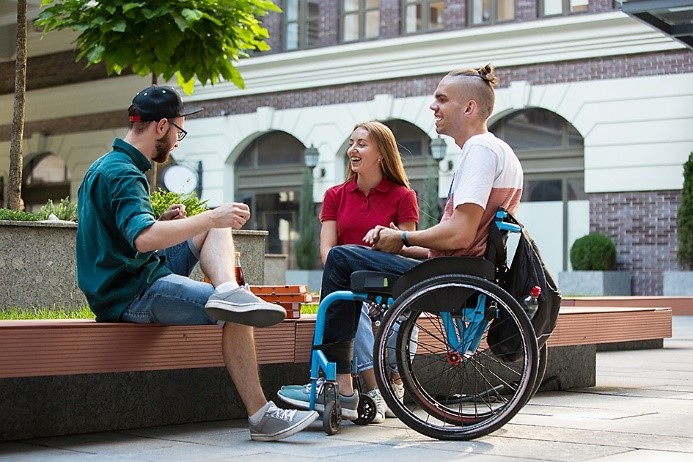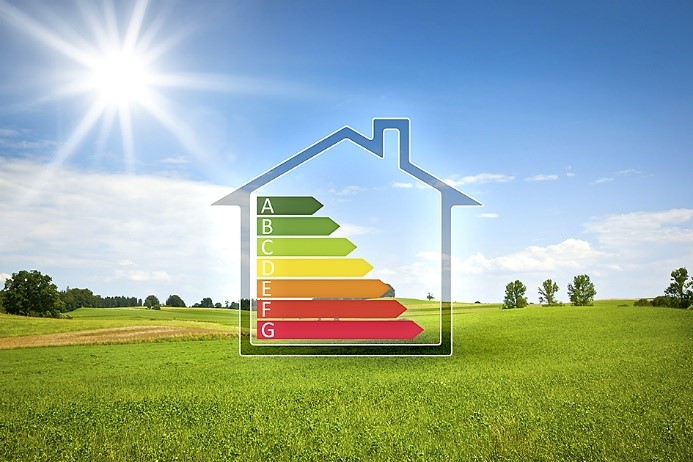INVITATION - How can cybersecurity standards increase consumer protection?We are hosting a special open webinar to discuss how cybersecurity Harmonised Standards can increase consumer protection. Please join us! When? Thursday 15 April 2021 at 15h30 CET (for about 1 hour) Speakers from CEN-CENELEC, Schneider Electric/CECAPI, Eurosmart, Orgalim, ANEC Chaired by Dermott Jewell, ANEC President More details and to register (by 13 April): https://bit.ly/3wzp5WS |
VACANCYCall for a volunteer expert on postal servicesWe are looking for an expert to provide us with technical expertise and to help defend the consumer interest in postal services, such as in CEN/TC 331 ‘Postal services’ and its WG 1 ‘Quality of postal services’. For more information please follow the link. |
Lead story
World Consumer Rights Day (WCRD) 2021
World Consumer Rights Day, co-ordinated by our colleagues in Consumers International, the membership organisation for consumer groups around the world, is held every year to underline the importance of consumer protection and empowerment. It marks the speech made by President Kennedy to US Congress on 15 March 1962 which set out four essential consumer rights (later extended to eight by the United Nations).
This year, World Consumer Rights Day highlighted the use of plastics and the consequences of a global plastics pollution crisis which would be detrimental to the local and international environment, and threaten human health.
We believe consumers can and must play a conscious and leading role in reducing the use of single-use plastics. To mark WCRD 2021, together with CEN-CENELEC, we called for the conversation on the value of European standards to focus on helping achieve the EU’s goal of reducing waste, through supporting detailed legal requirements on packaging waste prevention and packaging reuse.

Horizontal
2nd EU Product Safety Award

On 1 March, the European Commission, DG JUST, launched the 2nd edition of the EU Product Safety Award. The Award was launched in 2019 to provide recognition and visibility to companies that put consumer safety at the heart of their businesses. It also aims to raise consumer awareness on product safety, and encourage more informed purchasing choices. ANEC was honoured to serve as a member of the jury.
This year, the EU Product Safety Award is focusing on two categories - protecting the safety of vulnerable consumer groups, and combining safety and new technologies, both of which ANEC applauds. There will be up to 12 winners, with gold, silver and bronze awards granted to three SMEs and three larger companies under each of the two thematic categories.
Winners will receive their Awards from Didier Reynders, European Commissioner for Justice, at a ceremony on 23 September 2021. More information regarding the categories, eligibility and the application procedure can be found here.
Child Safety
ANEC Child Safety WG meets
The annual meeting of the ANEC Child Safety Working Group was held remotely on 18-19 March and was attended by 24 experts.
Members discussed achievements and upcoming challenges in standardisation work on toys, sports & playground equipment, childcare articles & children’s furniture and other products related to child safety. Specific discussions, among others, were held on breathability, finger entrapment, child-resistant requirements for e-cigarettes, trampolines & trampoline parks, pram covers, mosquito nets, bunk beds, carry cots & baby nests and on the use of sleep bags in car seats.
We thank Helen Amundsen and Mike Hayes for having co-chaired the web meetings, as well as all our volunteer experts, for their participation, dedication and continued commitment. Following the meeting, further ANEC teleconference meetings will continue to be held with experts on specific topics ahead of the next annual meeting.

Accessibility
Accessibility of the built environment
Public procurement (buying of works, goods or services by public bodies) accounts for over 14% of EU GDP. It is regulated by the EU Public Procurement law to make sure the public sector gets the best value for money. It is mandatory to include accessibility requirements in public tenders, noting it is public money and needs to benefit all.
In order to support public authorities, the European Commission requested the drafting of standards on accessibility to the built environment (Mandate M/420). The main deliverable (EN 17210 on functional accessibility requirements) was published this year. ANEC has been involved since the beginning of this work in 2008 and has led the drafting of the standards.
We were delighted to join Spanish colleagues in an UNE-ONCE workshop held on 22 March to present the work done. We noted that consumers expect to be able to ‘go out and about’ whatever their ages and abilities. For ANEC, standards need to be developed in an inclusive manner to realise the potential of the legislative instruments that encourage accessibility, such as Public Procurement legislation.
We now look forward to the implementation of the standards in order to make Europe more accessible for all.

Domestic Appliances
Carbon Monoxide Round Table

ANEC attended the online Carbon Monoxide (CO) roundtable, organised on 16 March by the Council of Gas Detection and Environmental Monitoring (CoGDEM), and co-hosted by MEPs Maria Spyraki and Seán Kelly. Presentations and discussions focussed on safe and efficient heating systems in the context of the building Renovation Wave, on decarbonisation of the heating sector and putting health & safety at the heart of building renovation. It was noted that the European Commission had published its Renovation Wave Strategy in October 2020 with a view to improving the energy performance of buildings.
MEP Spyraki said it is important to improve indoor air quality. CO is among those pollutants causing significant damage to people’s health and can lead to fatalities. She suggested that the use of smart safety devices could help prevent such fatalities. MEP Kelly highlighted CO poisonings are easily preventable, but that they still happen, most of them in the home and in relation to heating systems. He stressed the importance of CO awareness and said homes should not only be comfortable, but also CO safe.
ANEC stressed its previous concerns that the European standard, EN 50291-1:2018 ‘Carbon monoxide detectors’, does not reflect the acceptable CO concentration levels defined by the WHO and that consumer organisations objected to adoption of the standard. We informed the meeting about the draft Standardisation Request for space heating appliances, where the threshold limits for emissions (e.g. for CO) are indicated in mg/m3. We believe that ppm should be used instead, as the measure is easier to work with and to understand. We hope the EC reflects our concern.
Sustainability
Energy Performance of Buildings Directive
We see the planned revision of the Energy Performance of Buildings Directive (EPBD) as an opportunity to promote truly sustainable construction. In our new position on the Revision of the Energy Performance of Buildings Directive – IIA Roadmap, we explain in which ways ANEC believes the revision of the EPBD can introduce improvements.
We focus on seven areas:
- Update of the framework for Energy Performance Certificates
- Phased introduction of mandatory minimum energy performance standards for different types of buildings
- Introduction of Building Renovation Passports
- Introduction of a ‘deep renovation’ standard
- Resource efficiency and circularity principles
- Reducing energy poverty
- Facilitating sustainable mobility
The Renovation Wave initiative, and EPBD revision, need to remain part of a democratic and unbiased process that reflects the needs of both society as a whole and individual vulnerable consumers. The interests of all different parties involved have to be balanced, with the aim to tackle the increasingly widespread problem of energy poverty.
We summarised our position in our answer to the European Commission consultation on its Roadmap on the Revision of the EPBD where we favoured ‘policy option 3’ on amending the EPBD from those proposed.

Digital Society
The challenges of AI
We were pleased to discuss policy options for ethical governance of disruptive technologies at the European Parliament’s STOA event on 23 March 2021. Three key EU-funded projects on Artificial Intelligence - SIENNA, SHERPA and PANELFIT - presented their findings on governance structures sensitive to ethical and human rights concerns in relation to emerging technologies. As a member of the first panel, ANEC spoke on trustworthy AI for consumers and the role of standards.
One way to introduce values in the design of products and services (e.g. privacy by design, ethics by design) is through standards in order to embed technological principles to underpin legislation. In our view, it is vital that global markets and international trade do not preclude the protection of European values and principles.

ICT Standardisation Rolling Plan 2021
The new version of the EC ICT Standardisation Rolling Plan 2021 was released in March. We welcome seeing some of our proposals - responding to COVID-19 and actions on the circular economy - taken into account.

ANEC Digital Society WG meets
The ANEC Digital Society WG experts met remotely on 16 March 2021.
Items considered included the privacy and cybersecurity standardisation, with proposals such as the draft CEN/TR ‘Biometric for access control including face recognition’ carefully scrutinised. Discussions also covered the ETSI E4P deliverables on comparison of track-trace mechanisms systems and vaccine certificates proposals.
Members welcomed the progress made on the security of connected products exposed to security risks, such as hacking and data breaches. If personal data protection and security would become mandatory requirements for putting products on the market, manufacturers would need to respect cybersecurity obligations. We are therefore supporting the European Commission activities on this issue under the Radio Equipment Directive.
We must sincerely thank all our experts for their commitment and participation, and to our WG Chair, John Ketchell, for chairing the meeting so effectively from a distance.

Services
Plans for a safe return to free movement
The European Commission issued its Communication ‘A common path to safe and sustained re-opening’ on 17 March. It calls on Member States to coordinate a gradual lifting of COVID-19 restrictions. With a view to supporting a safe re-opening of the tourism sector, the EC also invited CEN, in collaboration with Member States and relevant stakeholders, to develop a standardisation deliverable as a basis for health and safety protocols for the hospitality sector. This should be available before the summer and include a ‘EU tourism health seal’.
ANEC is contributing the consumer perspective to the development of this CEN Workshop Agreement ‘Response to COVID-19 - Health and safety protocols for tourism establishments and services’, as well as the underlying ISO Draft Specification, ISO/DPAS 5643 ‘Tourism and related services – Measures to reduce the spread of COVID-19 in the tourism industry’ that will serve as a basis to the European work.
In parallel, the European Parliament adopted a Resolution on 25 March 2021 on establishing an EU strategy for sustainable tourism (2020/2038(INI)), demanding safe and clean travel.
Both the EC Communication and EP Resolution also highlight the importance for travellers of the reliability of the application Re-open EU, which provides an up-to-date overview of the health situation and the measures in place in European countries.

EU4Health
The EU4Health programme for 2021-2027 entered into force on 26 March. As the largest health programme to date, it will help EU health systems to be better prepared for future cross-border health threats. Going beyond the COVID-19 pandemic, it supports disease prevention and the digital transformation of health systems. It also aims at tackling health inequalities and promoting access to quality healthcare. It paves the way to the foundation of a stronger European Health Union to protect citizens’ health better.
In the context of disease prevention and health promotion in an ageing population, we see an important role in the application of European standards for person-centred care to which we contributed, including EN 17398:2020 ‘Patient involvement in health care - Minimum requirements for person-centred care’ and the upcoming CEN/TS 17500 ‘Quality of care and support for older persons’.

| List of meetings 2021 |
For comments or if you wish to write an article for the ANEC Newsletter, please contact: Marijana ANTAROROVA (This email address is being protected from spambots. You need JavaScript enabled to view it.).




